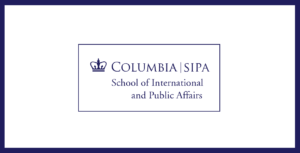Columbia University Launches $28M Open-Source AI Safety Initiative to Revolutionize Digital Security
Columbia University’s SIPA has launched ROOST, a $28M initiative to develop open-source AI safety tools. The project aims to enhance transparency and innovation in AI while promoting public interest. Focus areas include child protection and scalable safety infrastructure for global digital ecosystems.

Columbia University Launches $28M Open-Source AI Safety Initiative to Revolutionize Digital Security
Columbia University’s School of International and Public Affairs (SIPA) has launched a pioneering initiative in AI safety called ROOST (Robust Open Online Safety Tools), which was officially introduced at the AI Action Summit in Paris on February 17, 2025. Developed at SIPA’s Institute of Global Politics (IGP), ROOST is designed to address the growing need for open-source tools that ensure the safe and responsible development of AI technologies. The initiative has secured over $28 million in initial funding from philanthropic organizations and technology companies, marking a significant step in supporting global AI safety efforts.
The initiative aims to provide free, open-source safety tools that can be widely adopted to enhance transparency and innovation in AI development. By doing so, ROOST seeks to ensure that AI is developed in a way that benefits the public good. Camille François, an associate professor at SIPA and IGP, will lead the project as its founding president. According to François, ROOST addresses a crucial gap in digital safety infrastructure, emphasizing the importance of creating a pluralistic and secure digital future in the age of AI. The project promotes a shift from centralized safety solutions to open, collaborative frameworks that can scale globally.
ROOST’s approach is grounded in the belief that open-source tools will help build a safer, more democratic digital ecosystem. The initiative’s co-leader, Maria Ressa, a Nobel Peace Prize laureate, highlighted the significance of ROOST for global democracy. She stressed that digital independence is vital for democracy, and by offering the tools necessary to create independent platforms, ROOST will help preserve the diversity of voices essential for democratic functioning. News organizations and community platforms will particularly benefit from the tools developed by ROOST, which will enable them to establish their own digital spaces free from reliance on major social media corporations.
The initiative will focus on several critical areas, starting with the dissemination of tools to detect and remove child sexual abuse material (CSAM). It will also work on developing systems that utilize large language models for content safeguards, along with foundational safety infrastructure accessible to organizations of all sizes. Eric Schmidt, a founding partner of ROOST, emphasized the importance of the initiative’s collaborative approach to innovation, noting that it would make essential safety infrastructure more transparent and accessible, ultimately contributing to a safer internet for all.
SIPA’s Dean, Keren Yarhi-Milo, expressed the university’s commitment to supporting technological solutions that serve the public good. She noted that ROOST exemplifies how academic institutions can drive transformative technology initiatives that bring together diverse stakeholders to tackle pressing global challenges. In particular, the collaboration between major technology companies, civil society organizations, and open-source leaders is seen as a critical factor in the success of ROOST.
One of ROOST’s founding partners, the John S. and James L. Knight Foundation, highlighted the importance of translating academic research into practical, real-world solutions. Maribel Pérez Wadsworth, the foundation’s president and CEO, emphasized that ROOST would help apply the research to create online spaces that better connect people with information, ideas, and each other. The Knight Foundation’s investment reflects a broader commitment to improving how content is managed on digital platforms.
The AI Action Summit in Paris served as the official launch for ROOST, and the initiative has received support from a diverse coalition of partners, including Discord, OpenAI, Google, Roblox, the McGovern Foundation, the AI Collaborative, and the Project Liberty Institute. This broad support underscores the universal recognition of the need for open-source safety tools to promote responsible AI development while encouraging innovation.
Operating as an independent nonprofit organization, ROOST will continue to work closely with Columbia University as it develops critical safety infrastructure for the AI era. The initiative builds on SIPA’s history of fostering public interest technology projects that address global policy challenges, while providing opportunities for students to engage with the practical implementation of cutting-edge technology policies. ROOST is poised to play a significant role in shaping the future of AI safety, contributing to a more secure and democratic digital landscape.
Check out TimesWordle.com for all the latest news
You must be logged in to post a comment.